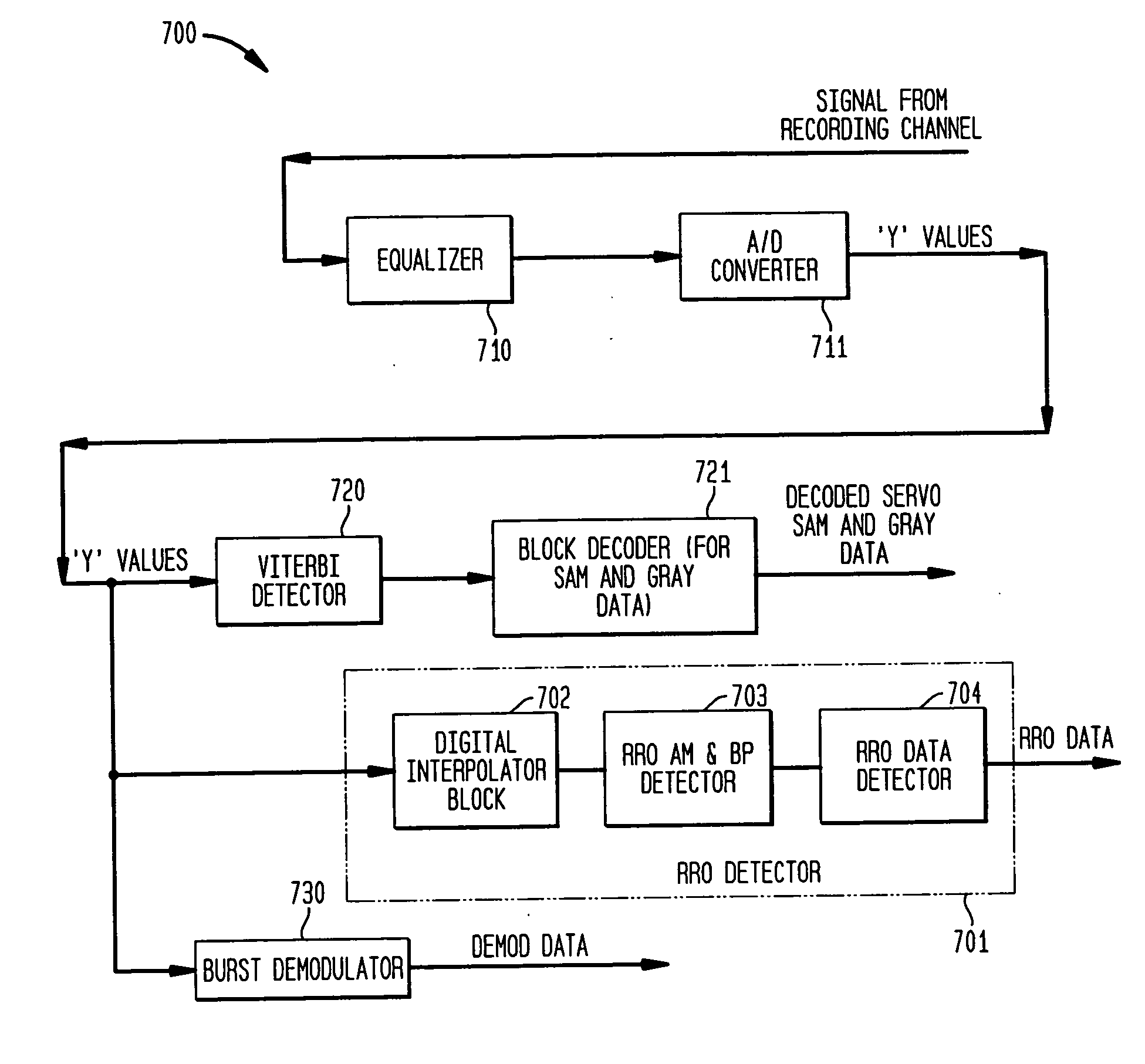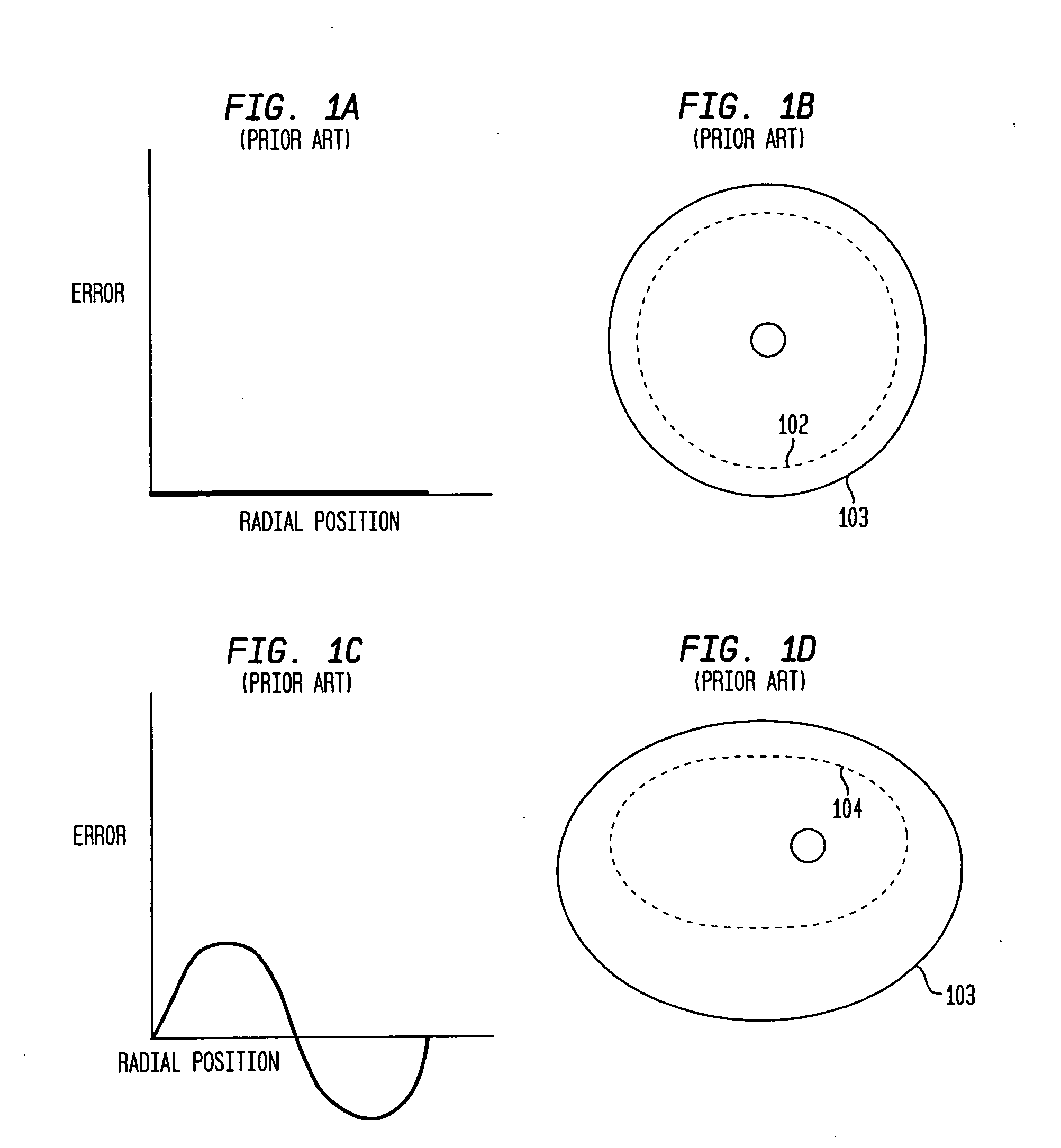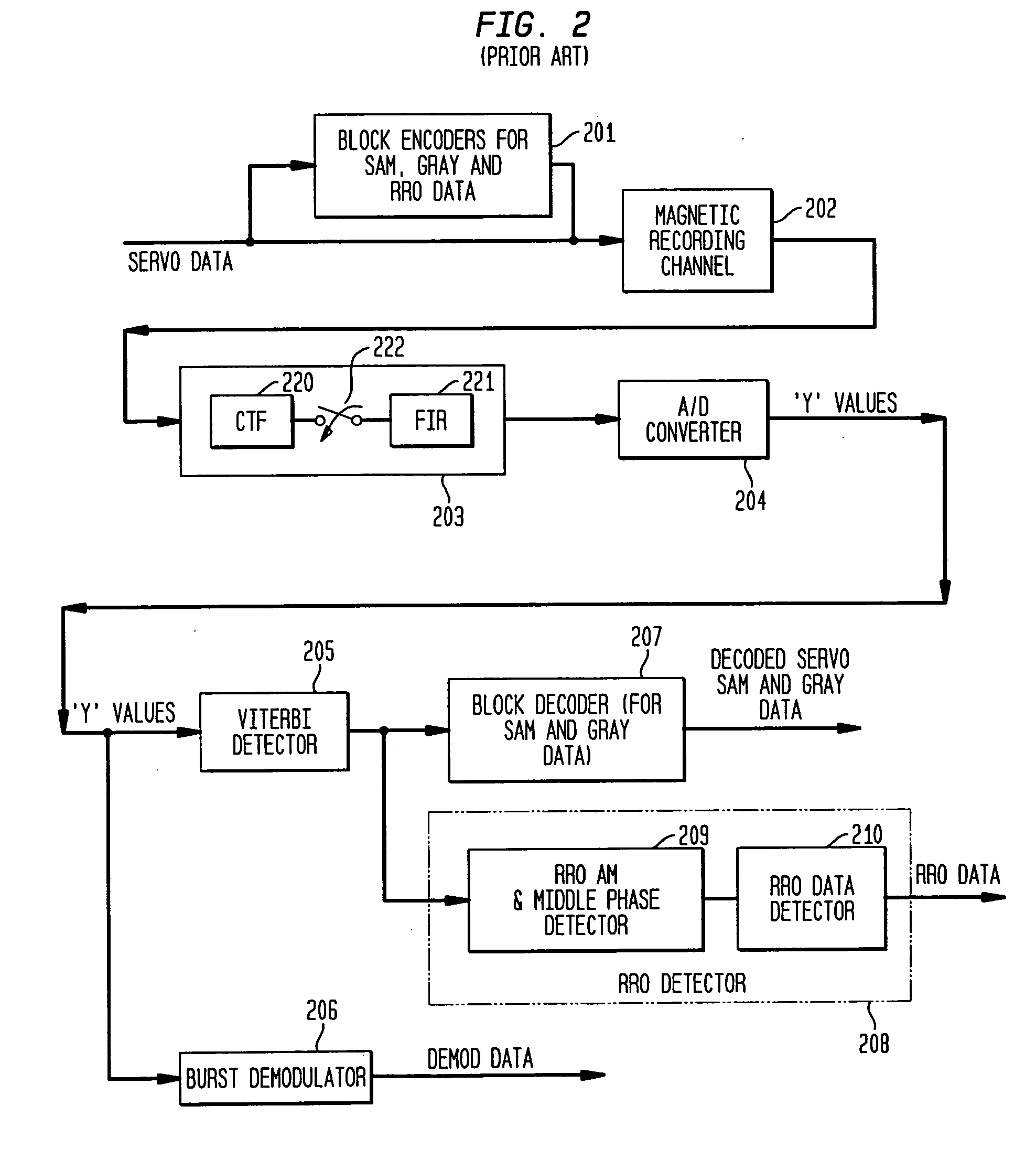Asynchronous servo RRO detection employing interpolation
a technology of rro detection and asynchronous servo, applied in the direction of maintaining head carrier alignment, amplitude demodulation, instruments, etc., can solve the problems of unfavorable data acquisition and transmission, and inability to accurately read servo information,
- Summary
- Abstract
- Description
- Claims
- Application Information
AI Technical Summary
Benefits of technology
Problems solved by technology
Method used
Image
Examples
Embodiment Construction
[0037]FIG. 7 shows a receiver 700 including a repeatable run out (RRO) detector 701 for detecting and decoding RRO data in accordance with exemplary embodiments of the present invention. Receiver 700 comprises equalizer 710 and A / D converter 711. Equalizer 710 applies equalization to a signal read from a magnetic recording medium, such as a magnetic recording disk, to compensate for effects of inter-symbol interference (ISI) and signal dispersion caused by the signal's passage through the magnetic recording medium. The analog signal may represent a series of symbols for servo data, such as encoded SAM, Gray, and RRO data as shown in FIGS. 3 and 4. Equalizer 710 may include a switch to enable sampling of the analog signal. A / D converter 711 generates digital samples at a symbol rate T from the equalized signal from equalizer 710. Sampling of the signal from equalizer 710 may be synchronous using the timing information from a digital phase-locked loop (DPLL, not shown in FIG. 7) when ...
PUM
| Property | Measurement | Unit |
|---|---|---|
| phase | aaaaa | aaaaa |
| trajectory | aaaaa | aaaaa |
| magnetization | aaaaa | aaaaa |
Abstract
Description
Claims
Application Information
 Login to View More
Login to View More - R&D
- Intellectual Property
- Life Sciences
- Materials
- Tech Scout
- Unparalleled Data Quality
- Higher Quality Content
- 60% Fewer Hallucinations
Browse by: Latest US Patents, China's latest patents, Technical Efficacy Thesaurus, Application Domain, Technology Topic, Popular Technical Reports.
© 2025 PatSnap. All rights reserved.Legal|Privacy policy|Modern Slavery Act Transparency Statement|Sitemap|About US| Contact US: help@patsnap.com



